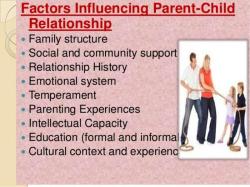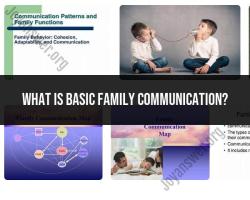How to budget for a family reunion?
Budgeting for a family reunion involves careful financial planning to ensure that all aspects of the event are covered without causing financial strain on participants. Here are some tips to help you create a budget for a family reunion:
1. Set Clear Goals and Priorities:
- Define the purpose of the reunion and establish clear goals. Determine the priorities for the event, such as accommodation, meals, activities, and any special events.
2. Create a Guest List:
- Develop a comprehensive guest list to estimate the number of attendees. This information will help you make more accurate budget estimates for food, accommodation, and other expenses.
3. Determine a Realistic Budget:
- Assess the financial capacity of the participants and set a realistic budget. Consider factors such as the duration of the reunion, location, and the types of activities you plan to organize.
4. Estimate Major Expenses:
- Identify and estimate the major expenses associated with the reunion. Key categories include:
- Accommodation
- Transportation
- Meals and catering
- Activities and entertainment
- Decorations and supplies
- Miscellaneous expenses (gifts, souvenirs, etc.)
5. Research Costs:
- Research costs associated with the chosen location, such as venue rentals, catering services, and activity fees. Get quotes from vendors to ensure accurate budgeting.
6. Allocate Funds for Contingencies:
- Include a contingency fund in your budget to account for unforeseen expenses or changes in plans. It's wise to have a buffer to handle unexpected costs.
7. Consider Cost-Saving Measures:
- Look for ways to reduce costs without compromising the quality of the reunion. This might include negotiating discounts with vendors, seeking group rates, or opting for budget-friendly activities.
8. Collect Contributions:
- If the family reunion involves shared expenses, consider collecting contributions from participants. You could set a per-person contribution or ask for voluntary donations.
9. Create a Spreadsheet or Budgeting Tool:
- Use a spreadsheet or budgeting tool to organize your budget. Break down expenses by category and keep track of actual expenditures to compare against your initial estimates.
10. Communicate Transparently:
- Communicate the budget and financial expectations clearly with all participants. Make sure everyone is aware of the costs involved and any contribution they may be required to make.
11. Encourage Saving in Advance:
- If the reunion is planned well in advance, encourage participants to save for the event. This can help alleviate financial stress and ensure that everyone can comfortably afford to attend.
12. Regularly Review and Adjust:
- Periodically review the budget as plans progress. Adjustments may be needed based on changes in attendance, vendor quotes, or other factors.
13. Post-Reunion Evaluation:
- After the reunion, conduct a financial review. Compare actual expenses to the budget, and gather feedback from participants to inform future budgeting.
14. Express Gratitude to Contributors:
- Acknowledge and express gratitude to those who contributed to the budget. This can foster a positive atmosphere and encourage financial responsibility for future reunions.
By planning ahead, communicating effectively, and being mindful of costs, you can create a budget that ensures a memorable and enjoyable family reunion for everyone involved.
Planning a family reunion requires careful consideration of various expenses and potential sources of funding. Here's a step-by-step guide to creating a comprehensive budget and securing financial contributions:
Step 1: Estimate Venue Costs
The venue selection significantly impacts the overall budget. Consider factors like location, size, amenities, and availability. Research and compare options, including community centers, parks, hotels, or banquet halls.
Step 2: Evaluate Catering Costs
Catering is a major expense for a family reunion. Decide on the meal style (buffet, sit-down dinner, etc.) and calculate the cost per person. Consider factors like dietary restrictions, menu options, and catering services.
Step 3: Assess Accommodation Expenses
If overnight accommodations are needed, evaluate options like hotels, Airbnbs, or family homes. Consider the number of guests, room types, and length of stay. Factor in transportation costs for those traveling from different locations.
Step 4: Estimate Transportation Costs
Transportation costs can vary depending on the reunion location and attendees' travel arrangements. Estimate airfare, train tickets, or rental car expenses. Consider sharing transportation options to reduce costs.
Step 5: Account for Activity Costs
Plan activities that align with the family's interests and ages. Factor in costs for entrance fees, equipment rentals, and transportation to activities. Consider incorporating free or low-cost activities to balance the budget.
Step 6: Create a Detailed Budget
Create a detailed spreadsheet or document outlining all anticipated expenses, including venue, catering, accommodations, transportation, activities, and any additional costs. Assign estimated costs to each category.
Step 7: Seek Financial Contributions from Family Members
Establish a transparent communication plan with family members regarding the reunion budget and potential financial contributions. Encourage voluntary contributions based on individual circumstances.
Step 8: Explore Fundraising Options
Consider organizing fundraisers to supplement financial contributions. Options include raffles, bake sales, online crowdfunding campaigns, or soliciting sponsorships from local businesses.
Step 9: Review and Adjust the Budget
As plans evolve and more information becomes available, review and adjust the budget accordingly. Make necessary adjustments to accommodate changes and ensure the reunion remains within financial constraints.
Remember, effective communication and collaboration among family members are crucial for successful budgeting and fundraising.








